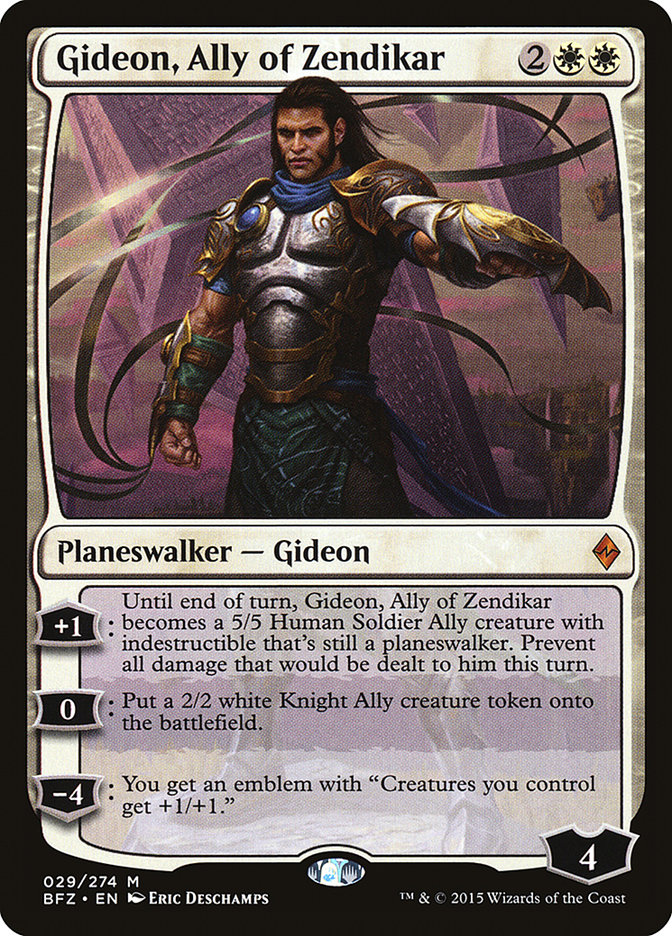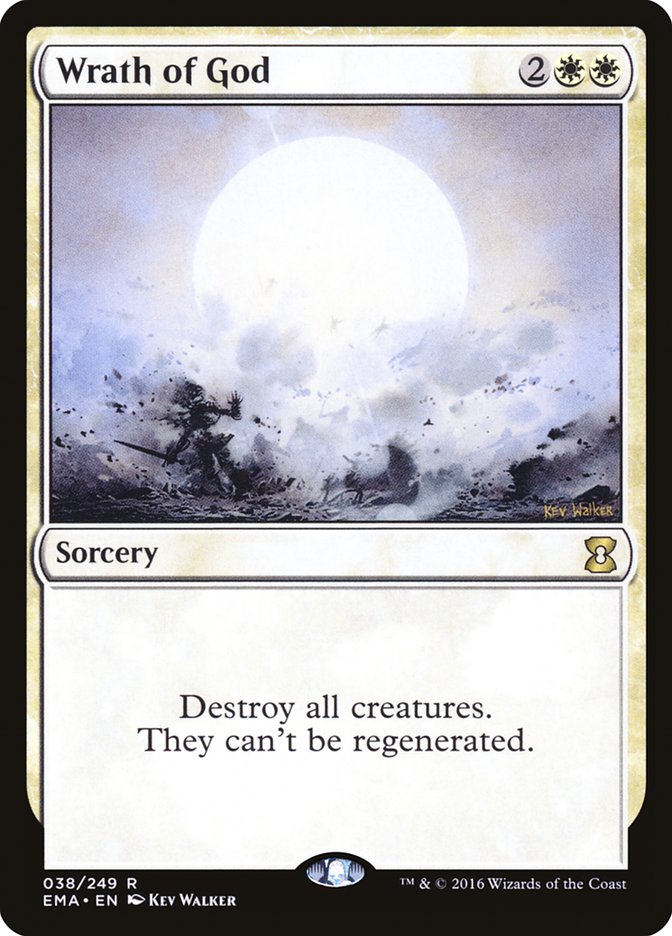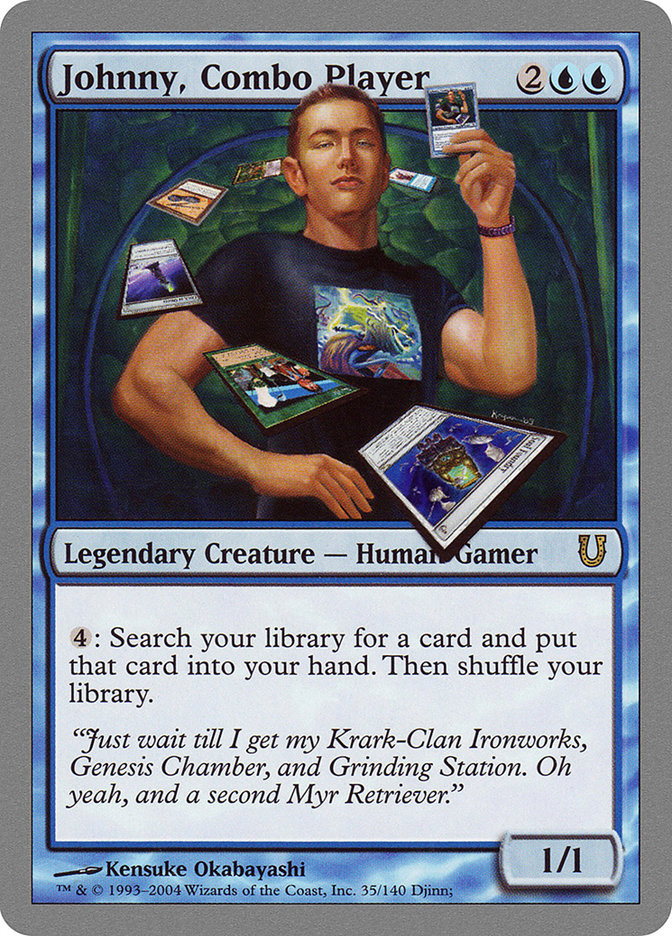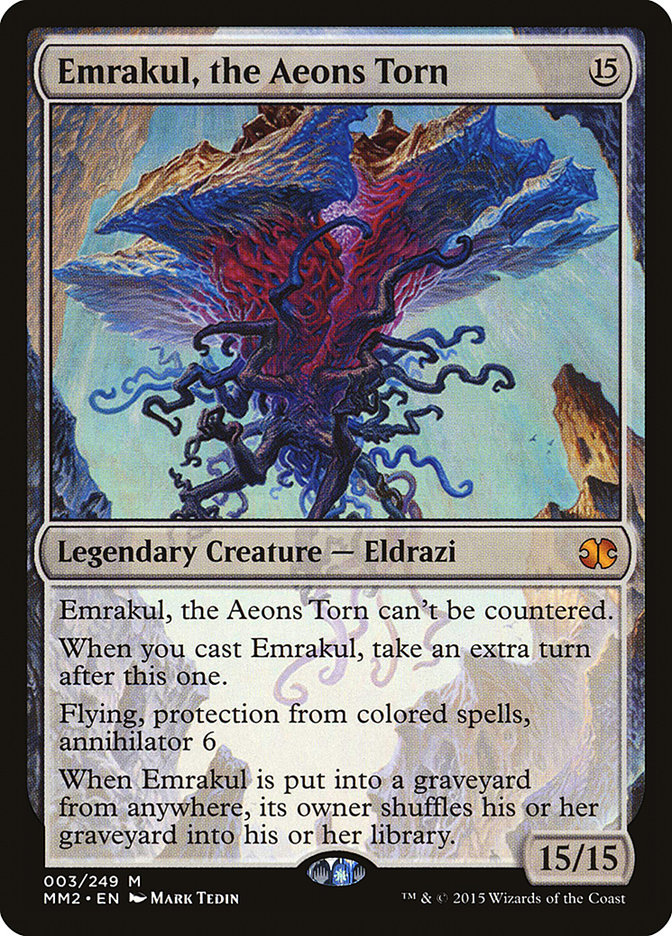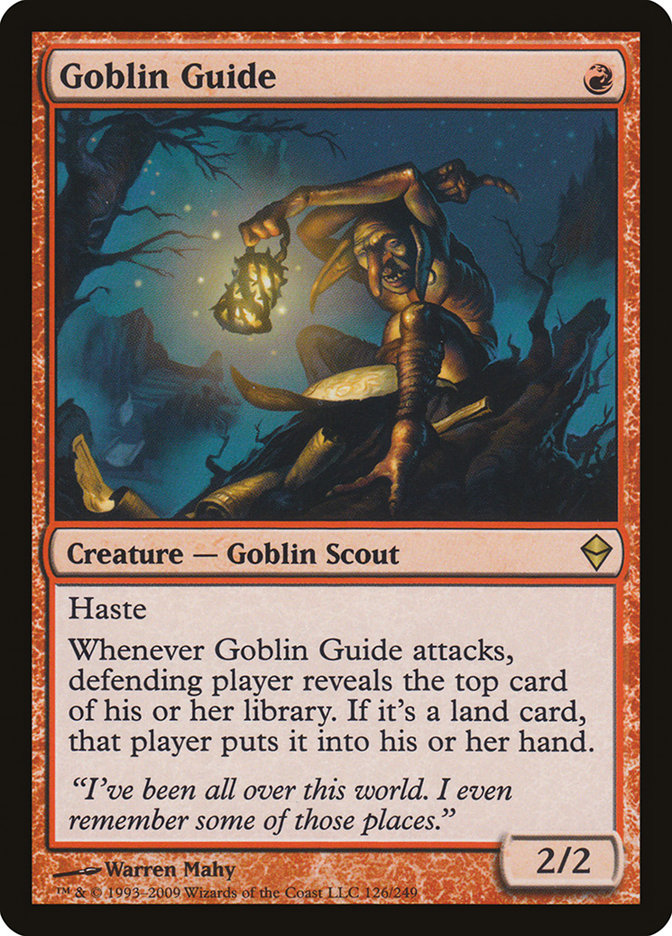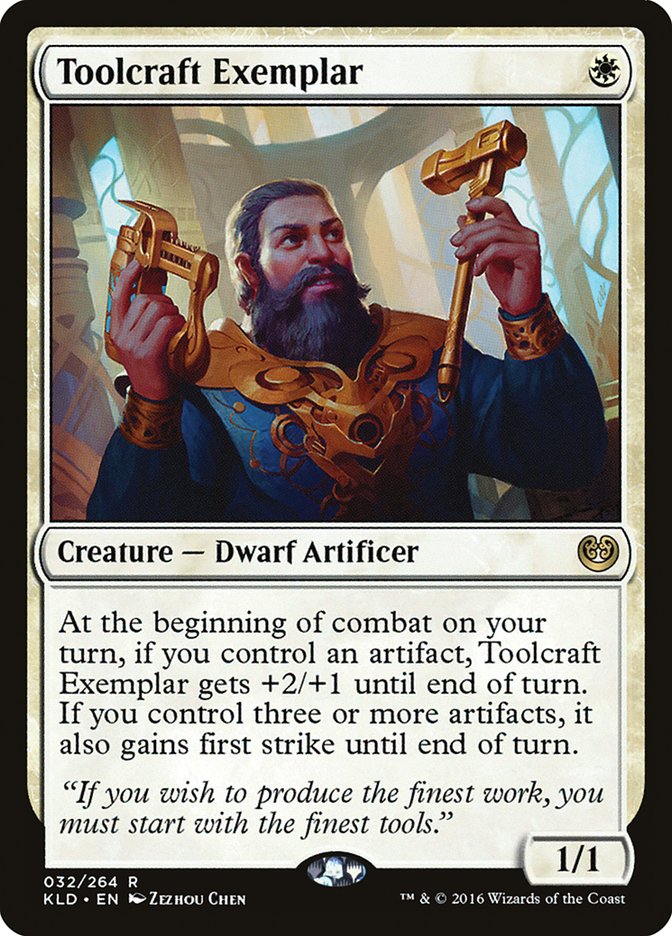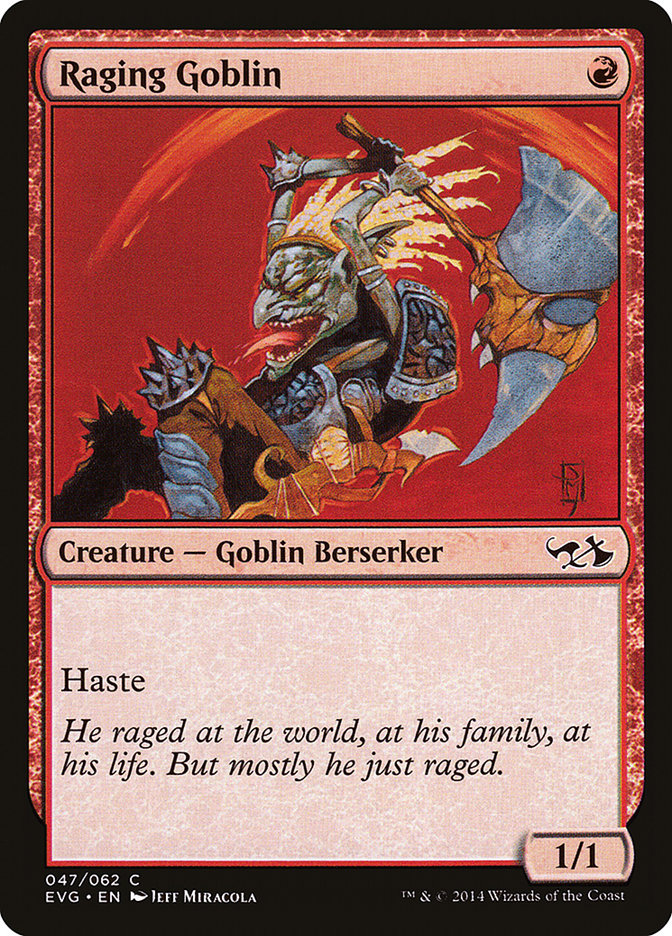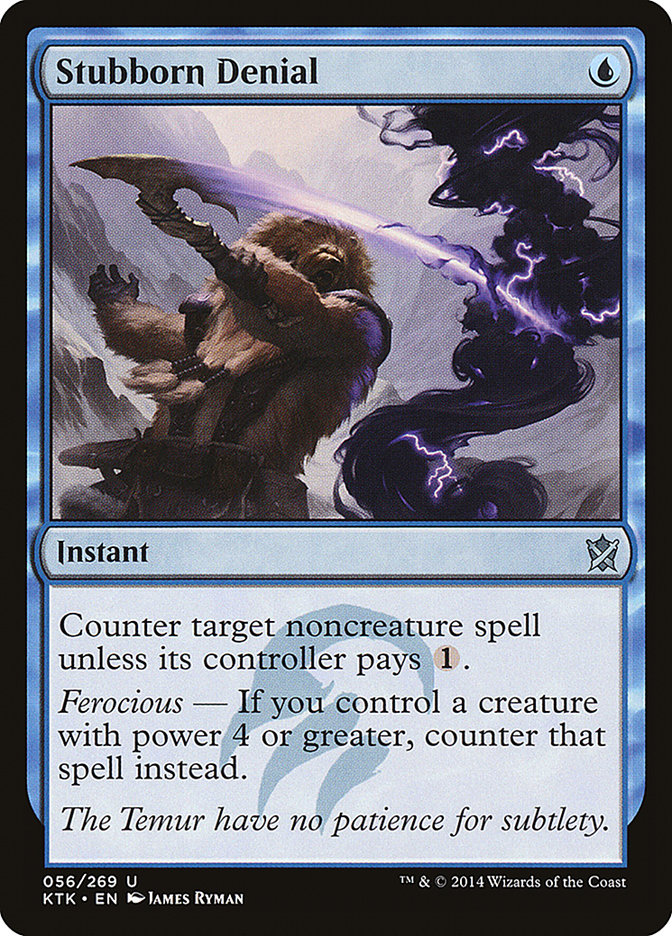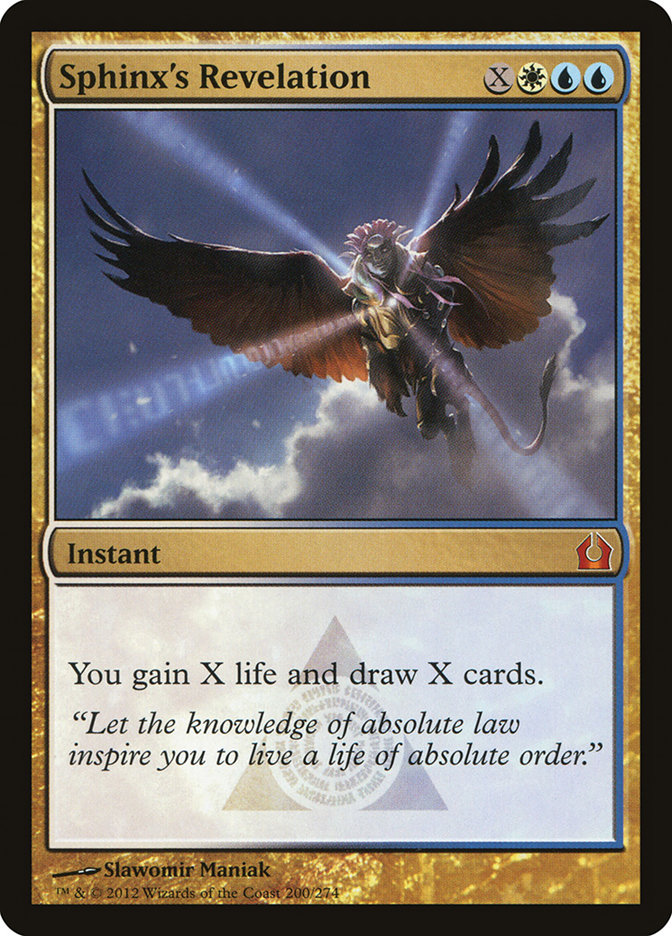I sometimes wonder if the references made about me in strategy articles have negative or positive intent. I try to keep up to speed with the inner workings of the professional community in order to keep my game and theory sharp, and in doing so I see my name referenced often. The topic is usually centered on control, but sometimes the author wants to give an extremist side point of view and does so by mentioning me.
This led me to a crossroads in my game in which I had to decide whether to go down with the control ship, as I always had, or possibly branch out when the format is relentless against us. I picked up decks like U/R Delver at the #SCGINVI last year in Las Vegas, B/G Delirium at Pro Tour Eldritch Moon, and now my most recent delve into the aggressive world, U/R Burn at the upcoming #SCGINVI in Atlanta.
There have been random occasions where I felt the need to move off the control beaten path, but in recent times I have made that choice more often than ever. I even went as far as to promise Brian Braun-Duin to play every deck he plays in every format if my fringe control deck performed poorly at Grand Prix New York last year. Luckily I had the constitution to push forward with a 13-2 record, starting the qualification chain for the Pro Tours this year. If you all know BBD well, then you know how spiteful he can be to his friends. If I did poorly in that event, he threatened to torpedo his own tournament results to force me to suit up G/W Hexproof, Goblin Charbelcher, and a host of other stinkers for his personal amusement. The point of this pact was to determine whether or not I’m the cause of my professional decline in Magic, or my deck choices were.
I was going to write my typical strategy article centered on the battle royal about to ensue this weekend, but my article last week covered the deck I am battling with in detail. Standard has always been a format where I can craft a deck that is at worst 40% against the field. The Grixis Control deck that I wrote about and am using this weekend has a pretty great game against the heaviest hitters in the format, but it still has the control woes against a Gideon, Ally of Zendikar. We are at the point where preventing it from resolving on turn 4 is the only road to success. When it resolves in the later turns, it is just a minor nuisance.
I have been teetered back and forth with the amount of Ruinous Paths in my lists due to that card, but running two has been the necessary evil that has worked the best. Since my decklist in my last article and the one I’m using now have only about a four-card difference, I wanted to write about something else.
My shift into aggressive decks in Modern is a major turning point for me and those who look to me for control assistance in formats across the board. Even though I didn’t crash and burn in that pact made with my buddy, I still know that there is a level of disadvantage brought in playing the same archetype in every format, regardless of the metagame.
Why Do It?
Why do I, and others, play the same archetypes? That question has been asked of me on many occasions and the answer is pretty complicated. The number one reason is I truly believe in the superiority of control in competitive Magic.
I’ve written countless articles that take on the unpopular belief that control provides more avenues to victory than its aggressive and midrange counterparts. The ability to win the game with a limited, moderate, or excessive amount of land is the advantage I yearn for when battling with control over the years. There are more mana sinks that reward us for playing a large number of lands, which in turn prevents mana screw. Less mulliganing has been another beneficial side effect of playing so many mana sources and card draw to reach them. I am fully aware that the spells I sling in the early-game are highly inefficient in the grand scheme of things, but I make that sacrifice for a level of consistency that I’ve been successful with.
After following this strategy for years, it is difficult to let it go. I’m not alone in this school of thought, as professionals from all other areas of the world stay true to the control lifestyle, no matter the format, and regardless of what is at stake. The superiority of control cannot be the only reason that I, and these other mages, continue to fight the good fight.
There are many specific reasons that I could write about for days, but I think I figured out how to chunk all of those into one. There is tremendous advantage to playing the same archetype over and over. Remember that person that plays that annoying ramp strategy at your FNM every week for the last five years? I bet he or she has been a difficult foe to beat consistently because of their experience putting a lot of lands onto the battlefield and following it up with ridiculous creatures. We all have players like that at our local game stores, across the SGG Tour, and even in the Pro Tour.
I knew what I was up against when I sat down across Tom Ross at the first #SCGINVI that he won. Tom Ross is a perfect example of a player who has spent his life mastering the art of combat in these aggressive decks, leaving no point of damage in the air. I’ve adamantly argued about the difficulty of playing control versus aggro over the years, but Magic is a hard game regardless of what side you take in that debate. Missing one point of damage when playing Burn can be as egregious as several misplays from the Esper Control mage.
Making mistakes becomes less frequent as you improve your skill through tournament play but becomes a rarity if the same archetype was being used. Do I make play mistakes with control? You bet I do, but the number is much lower than before. I see this when I go back and look at old footage, as well as when I naturally recall the types of errors I made a few years back that I simply don’t make anymore.
Tournament Magic is a form of art. It’s beautiful, complex, and unforgiving when a mistake is made. There are times where you can paint over that small error, but enough imperfections will ruin the masterpiece.
Fetching the wrong land, miscounting damage, casting the wrong spell, not scrying correctly, as well as all other mishaps can be overcome with hard work and practice. Many of us out there don’t have the time to dedicate to hours and hours of playtesting, so we look for other ways to decrease the amount of errors we make when we venture out to compete on the SCG Tour.
I’ve painted the art for Esper Charm about fourteen trillion times. I know exactly where to put each design without fault due to exposure. I love to use BBD as my go-to example. He felt the wrath of The Esper Professor in the Top 8 of the #SCGINVI a few years back when he fell 3-0 in the Esper Control mirror. He is a way better player than I am, and will give reasons why the lopsided defeat occurred, but the role of experience is something that cannot be ignored.
Tom Ross sees the illuminated path to victory as he Burns or Infects his way forward. I also see the light at the end of the tunnel, but it is more of a survival challenge. The survival challenges control players engage in tournament after tournament will start to pay off. You’ll know what lands to lead with, how much damage to safely take in order to keep mana open, what cards to keep on top, what spells to counter, what spells to let resolve, and so on.
These come with repetitive control play and become fairly subconscious as time goes on. I don’t even think about some of the decisions that are presented before me. Often I’m asked why I didn’t choose X over Z, when I was unaware that X was even a choice. I explain my reasoning to the player and hopefully help them grow like I did.
Situations that occur during games are more similar than different. Opponents who attacked with Goblin Guide five years ago are following the same strategy as those who attack with Toolcraft Exemplar today. The cards have changed, but the strategy behind Magic remains constant.
This is not a bad thing. The game’s popularity continues to rise and some of that is credited to the creativity of the team at Wizards of the Coast. They have been able to apply layer on top of layer to the archetypes that have existed since the game began.
You will hear me rant from time to time about how R&D has it out for us control mages, but I understand their standpoint as they continue to weaken the archetype. Blue decks dominated every format for many, many years, and now it has fallen in both Standard and Modern. Even though I love all things control, the majority of Magic players out there do not share that passion, so I accept the power reduction.
The point is that control, aggro, midrange, and combo will always be present in some capacity, so the interactions that occur between these archetypes will continue to share commonalities as long as the game lasts. Constant tournament play with the same style of deck will naturally provide you with a level of awareness, allowing you to identify these commonalities and understand the correct line to take.
The Cons
Nothing in life exists without some drawbacks. I began typing this article when Brad Nelson mentioned on Twitter that he references me more often than anyone else in his career of writing here at SCG. I see the references he makes and I understand how I can be considered stubborn when it comes down to deck choices.
He, along with a bunch of different pro players, has constantly told me that my decks are weak and that I need to start using the best options. Brad and company aren’t doing this in spite but as friends of mine that want me to have the same success that they have enjoyed. For that reason, I’ve never been offended and it’s also helped me recognize the pitfalls that exist when playing the same style of deck in every format across the board.
The biggest issue with staying the course is any power level shift is ignored. Sphinx’s Revelation lifted the dead archetype into one that gave all of us control mages great success until the day it rotated. Before Azorius came and helped revitalize control, I was getting destroyed tournament after tournament. Control simply wasn’t very good; a card came and then control was good, so the winning began.
It is dangerous to depend on future cards to come and save you from months of losses instead of shifting to a new archetype in the meantime. I was spoiled by Dig Through Time right after that, but after that card moved out of Standard, I struggled with weaker versions of control depending on Jace, Vryn’s Prodigy. The power level wave that we dedicated mages ride can be very turbulent, and players like Brad Nelson thrive due to their ability to shift gears at a moment’s notice. I know that I personally don’t have the time to master additional archetypes like I have control, but for you young ones out there that read my work, I implore you to master multiple strategies instead of relying on one like I have.
The next-biggest negative to playing with the same style deck throughout the years is the matchup dilemma. There have been many sets printed throughout Magic’s history that change the metagame with each release. Prior to the release of Kaladesh, I had this bomb Esper Control list ready to go with Emrakul, the Promised End; Oath of Jace; and a ton of powerful sorceries. Smuggler’s Copter embarrassed me match after match on MTGO, and after wasting two weeks on developing this list with all these sweet cards, I had to scrap it.
Did I then move into a more proactive strategy with efficient spells in order to keep up with the power of vehicles? Nope. I threw together R/B Control, then U/B Control, then Mardu Control, then Esper Control (with instants), and now Grixis Control. This embodies the negative of playing the same archetype regardless of the cards printed that ultimately makes our lives nightmarish. Smuggler’s Copter is just a recent example that follows the same pattern of its predecessors. This card, or others like it before, doesn’t make control unplayable, but it does make it difficult to win.
People often use the word unplayable when it isn’t accurate at all. Rarely will you see me deem an archetype as dead in a format, but today is the day it has to happen. I mentioned my U/R Burn deck choice for Modern this weekend, and that is because control is unplayable at the moment. Without a powerful unban, banning yet more cards, or some magical new options from future sets, Modern is an aggro-fest that has no room for control at the party. With that being said, I will be first in line when this reality shifts for the better, and I think it will.


